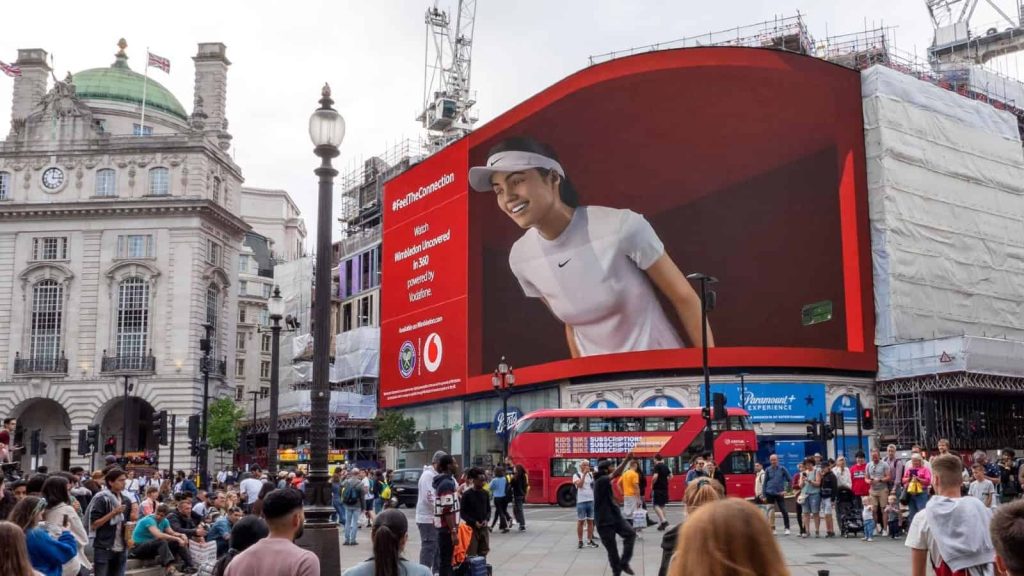Vodafone shares: here’s the latest dividend and price forecast


Since July 2020, Vodafone (LSE:VOD) shares have fallen in value by over 35%. Declining revenue, a 50% cut in its dividend, and a huge debt pile have all contributed to this disappointing performance. But since 1 January, the stock’s risen 18%.
Let’s take a closer look at the latest forecasts.
A difference of opinion
The consensus of brokers is that the group’s shares are marginally over-priced.
The average of their 12-month share price targets is 78.01p. However, looking at averages can sometimes mask a variety of views. The most pessimistic ‘expert’ reckons Vodafone’s shares are worth 52.01p. At the other end of the scale, one believes a price of 138.69p is realistic. Overall, six consider the stock to be a Buy, 11 say it’s a Hold and four are recommending their clients to Sell.
Analysts are expecting earnings per share (EPS) of 8.52 euro cents (7.39p) for the year ending 31 March 2026 (FY26). To achieve a price approaching 140p, a multiple of 18.9 times forward earnings would be needed. This seems ambitious to me.
By comparison, Deutsche Telekom, Europe’s most valuable telecommunications company, trades on 13.4 times consensus forecast earnings for 2026. But if this multiple was applied to Vodafone, its shares would be changing hands for around 99p. I think this is a more sensible valuation.
Steadily increasing payouts
When it comes to forecasting the group’s dividend, there’s a narrower range of predictions. The consensus is for the payout to rise from its present 4.50 euro cents per share to 4.78 euro cents by FY28. That’s an increase of 6.2%. None are predicting a cut from its current level.
Although never guaranteed, if analysts’ predictions prove correct, the payout ratio’s expected to fall from 53.5% (FY26) to 43.1% (FY28). This could be a sign they’re underestimating the level of returns to shareholders.
However, in common with many FTSE 100 companies, Vodafone appears to prefer share buybacks to dividends so, maybe, the analysts are right to be cautious.
| Dividend forecasts | FY26 | FY27 | FY28 |
|---|---|---|---|
| Average (euro cents) | 4.56 | 4.66 | 4.78 |
| Low (euro cents) | 4.50 | 4.50 | 4.50 |
| High (euro cents) | 4.75 | 5.00 | 5.25 |
Is Vodafone worth buying?
Although City opinion appears divided, I reckon the group’s still undervalued. And the pick up in the share price could be a sign that other investors agree.
Service revenue’s growing again and the business is doing particularly well in Africa and Türkiye. If the brokers are right, EPS will grow by 41% over the next three years.
By selling its divisions in Spain and Italy, the group’s been able to reduce its borrowings, long seen as its Achilles heel. At 31 March, its net debt was equal to twice its adjusted EBITDAaL (earnings before interest, tax, depreciation and amortisation, after leases).
This is below its target range of 2.25-2.75. Critics of the group might be surprised to learn that this is lower than, for example, that of Deutsche Telekom.
However, it’s still losing customers in Germany. Also, telecoms infrastructure is expensive. And its post-tax return on capital employed was unchanged in FY25. This remains a concern to me because the reason for shrinking the group was to improve its efficiency.
But on balance, I think there are signs that after a difficult period of restructuring, Vodafone may have turned the corner. That’s why I plan to hold on to my shares. And why it could be a stock for other investors to consider.
The post Vodafone shares: here’s the latest dividend and price forecast appeared first on The Motley Fool UK.
More reading
- Could the Vodafone share price reach £1 in 2025?
- Income shares: how much do I need to invest to earn £500 a month?
- Up 10% in a month! What on earth’s going on with the Vodafone share price?
- Vodafone shares: a £1,000 investment 5 years ago is now worth…
- Prediction: in 12 months the recovering Vodafone share price could turn £10,000 into…
James Beard has positions in Vodafone Group Public. The Motley Fool UK has recommended Vodafone Group Public. Views expressed on the companies mentioned in this article are those of the writer and therefore may differ from the official recommendations we make in our subscription services such as Share Advisor, Hidden Winners and Pro. Here at The Motley Fool we believe that considering a diverse range of insights makes us better investors.






